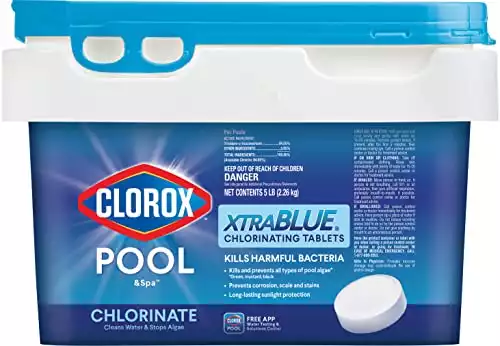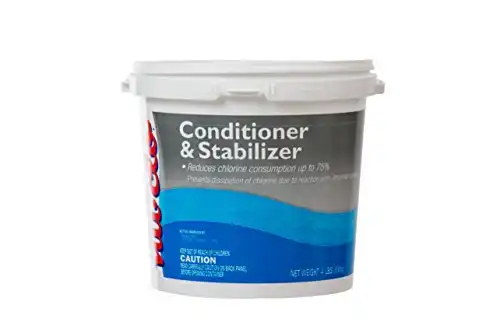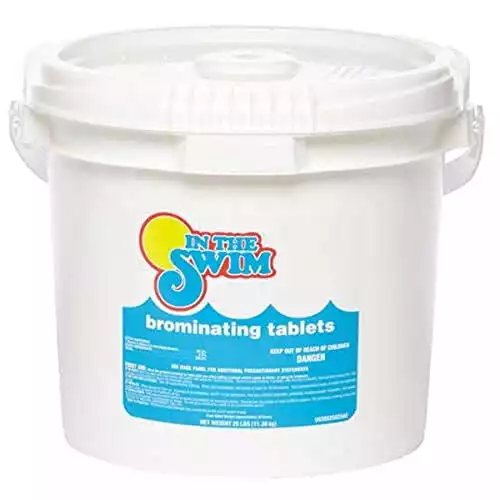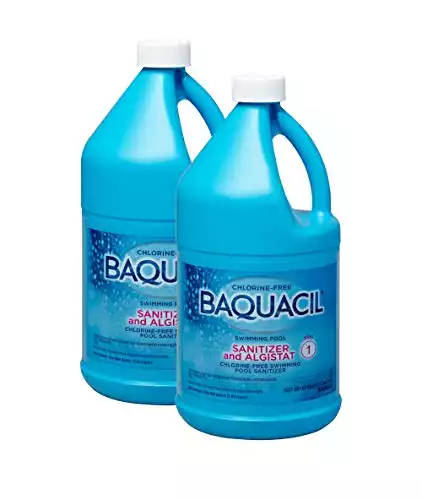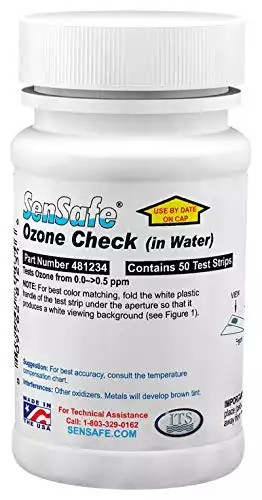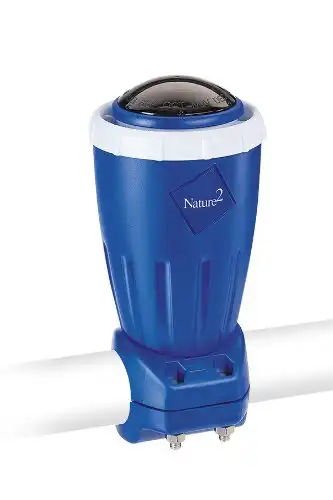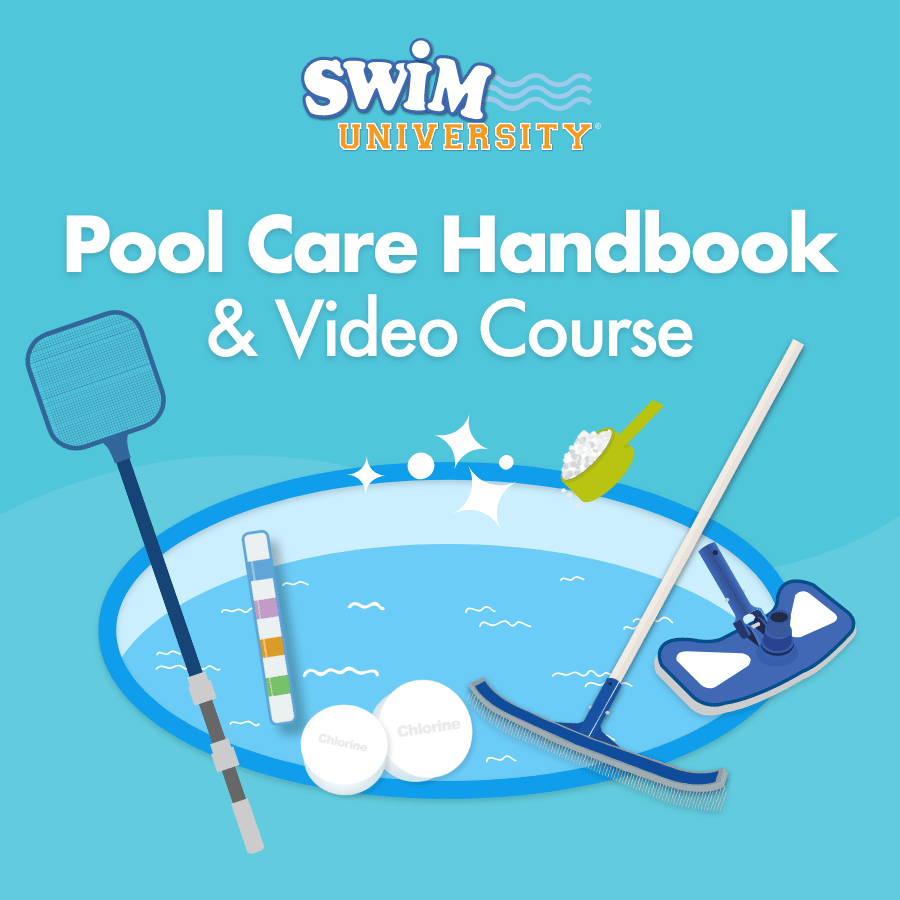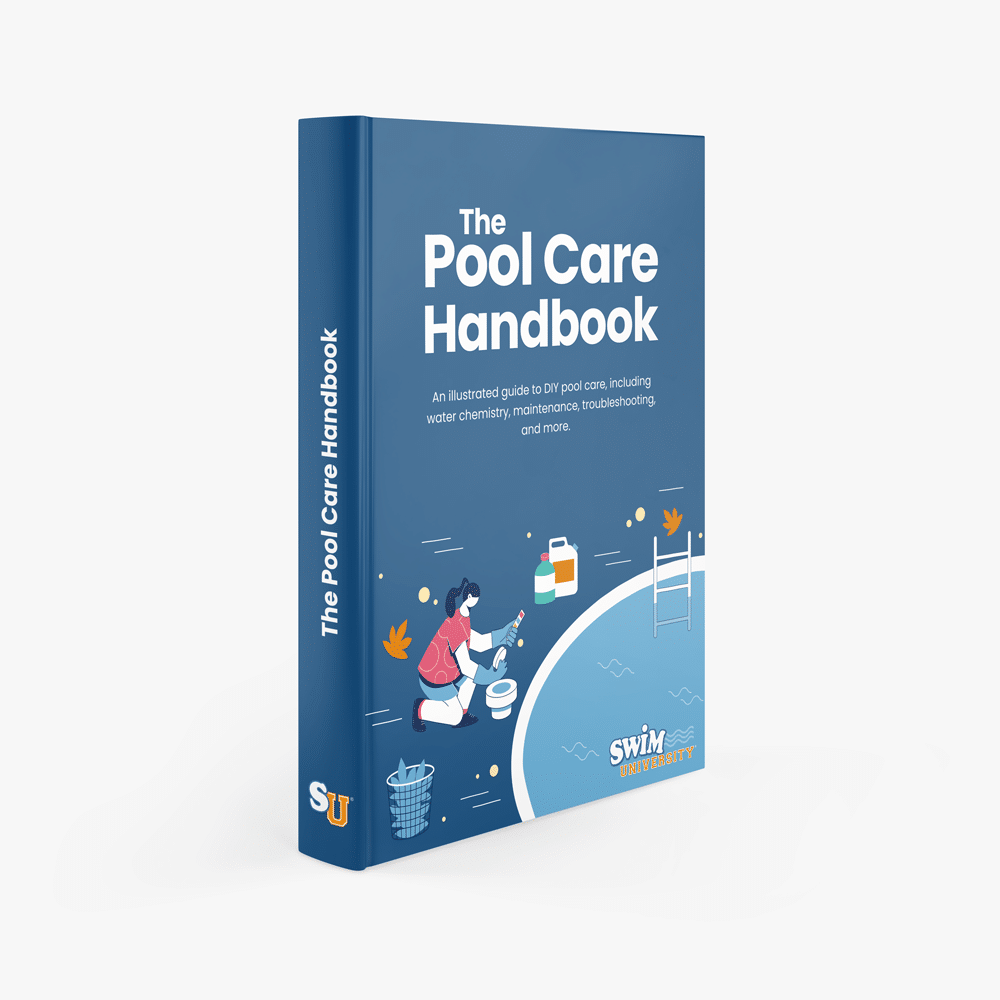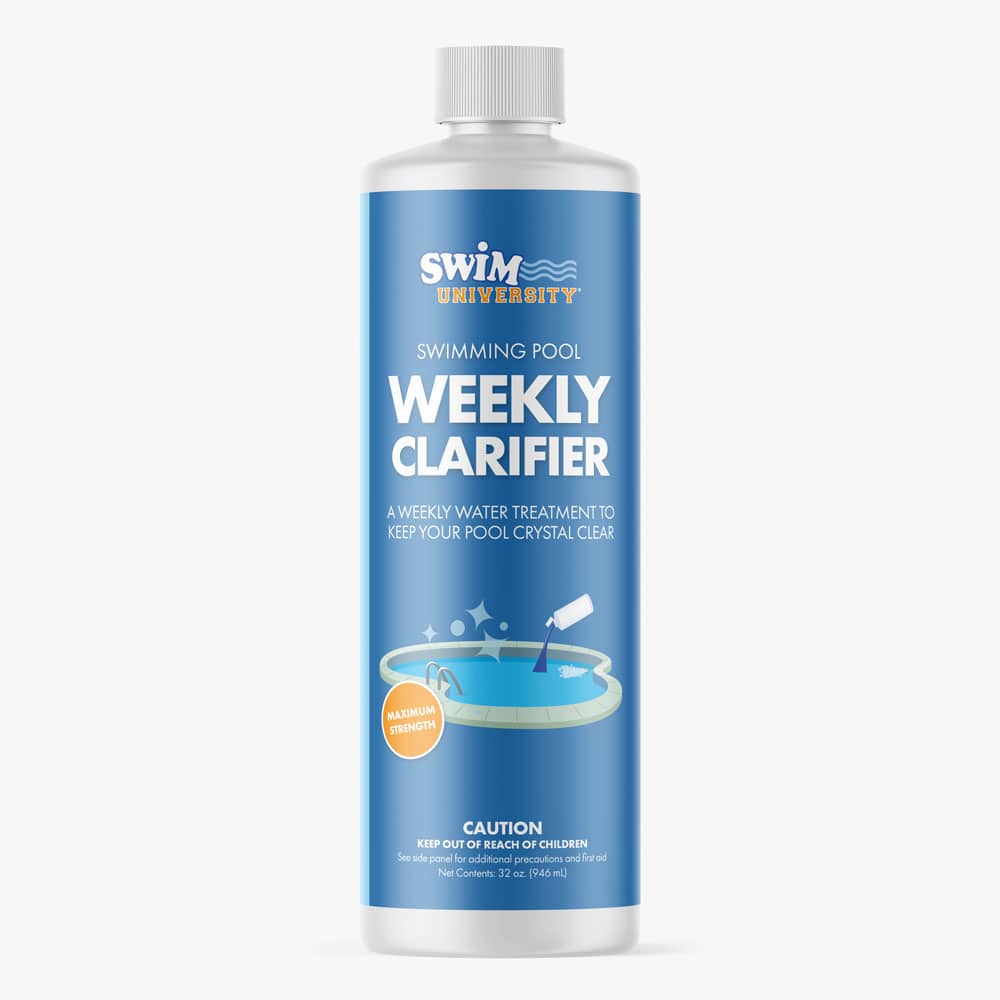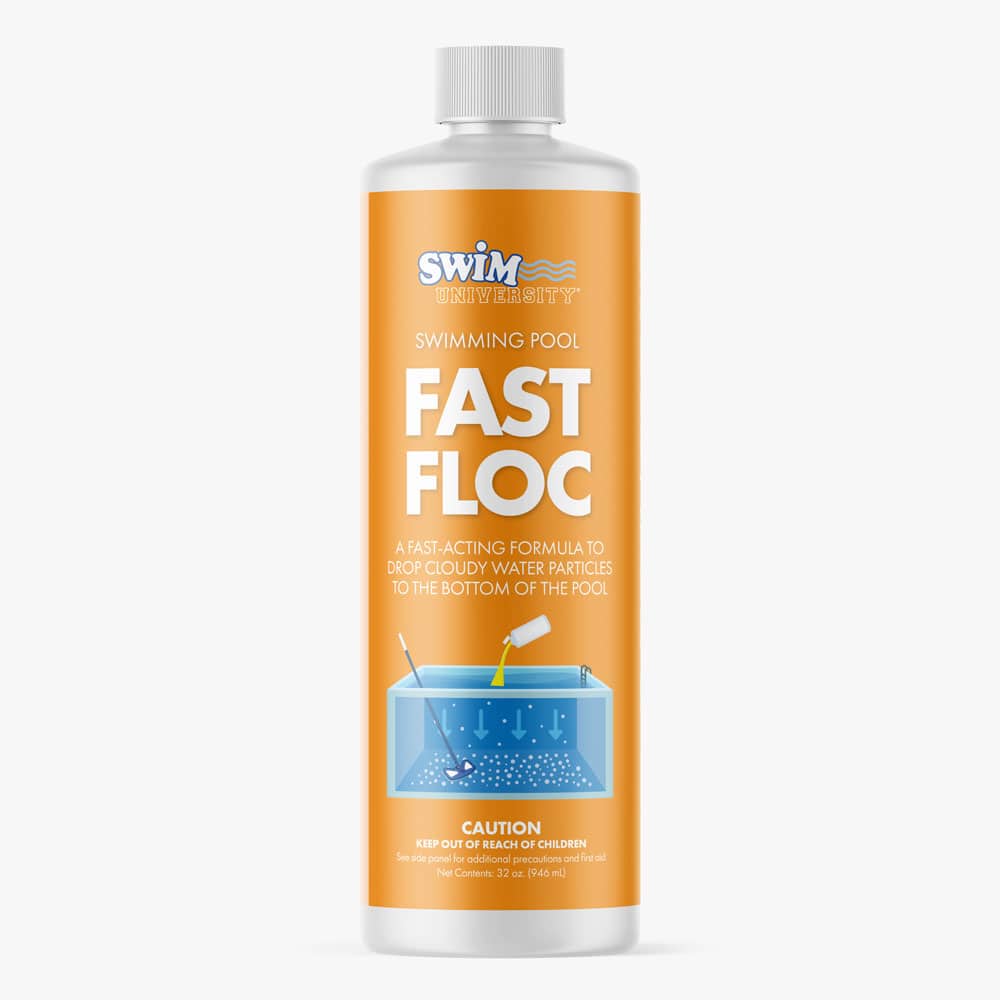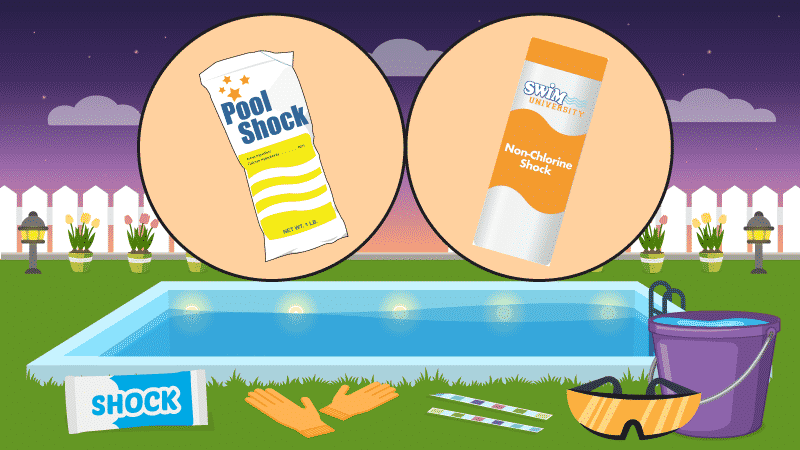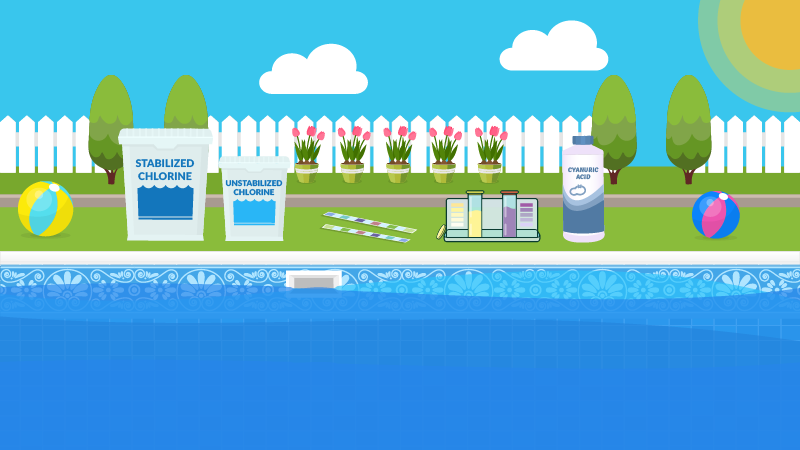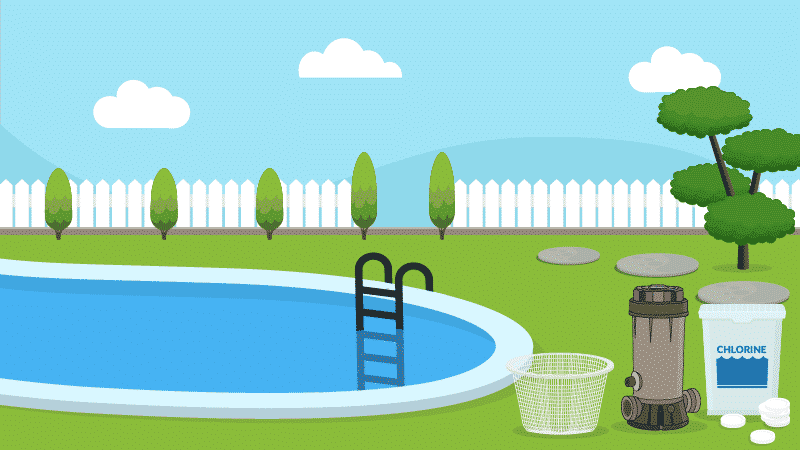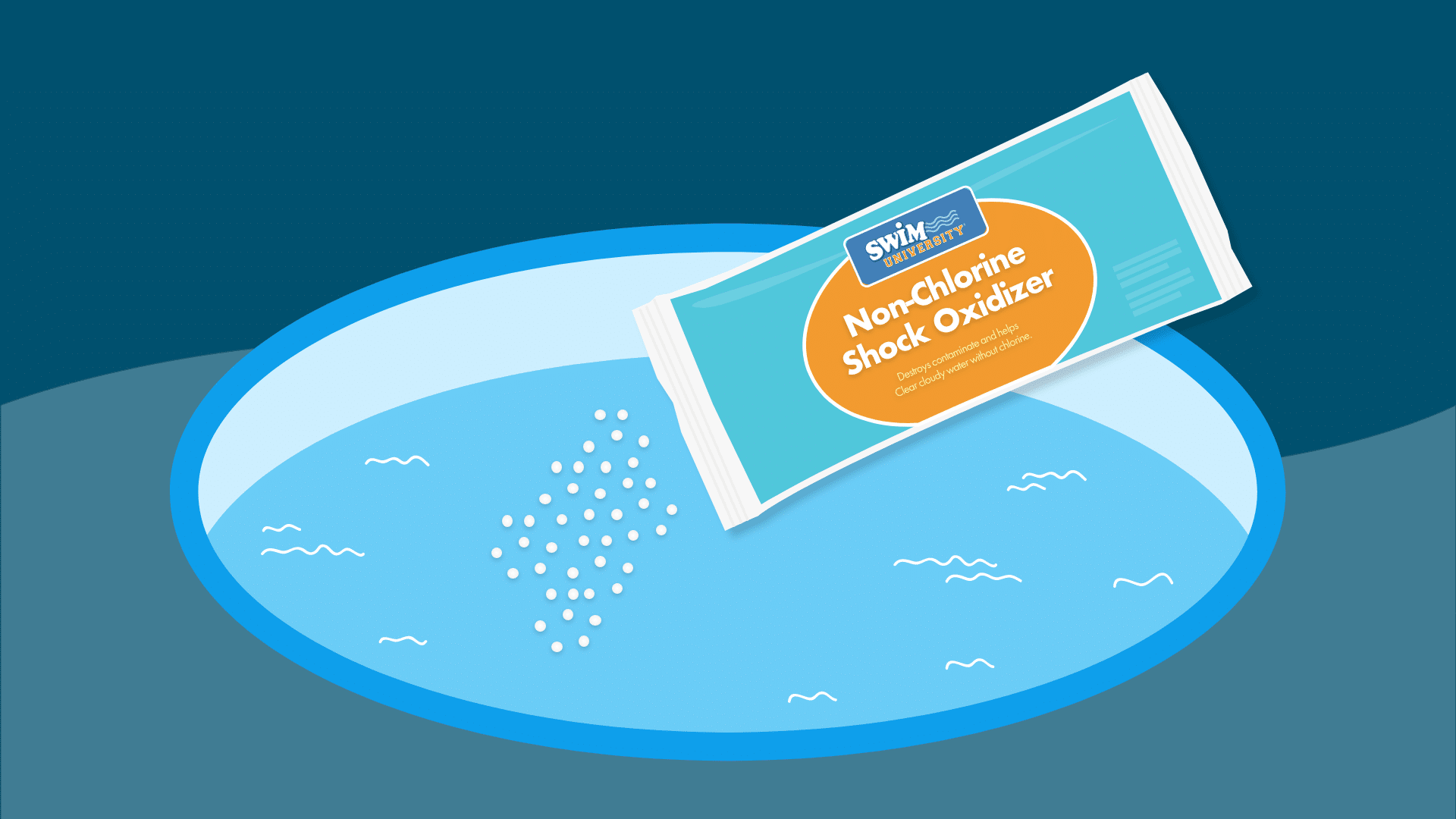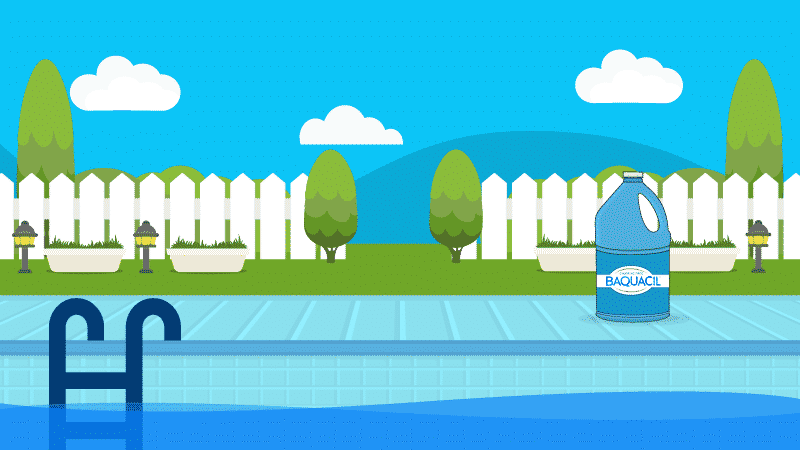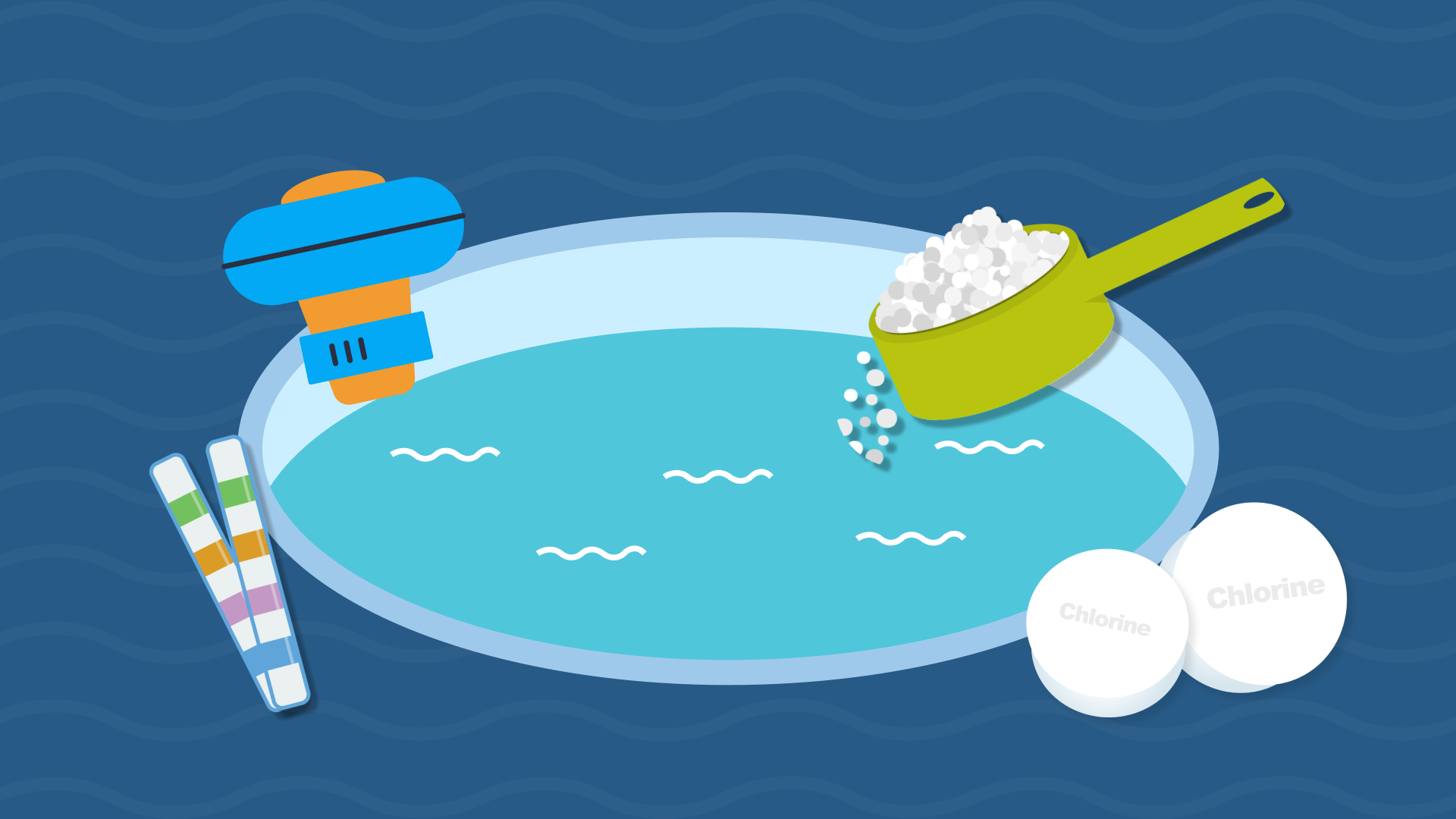Is there even such a thing as a chlorine free pool?! How can that be?! Doesn’t that mean you’re swimming in dirty, swampy water? Not at all. Chlorine may be the most widely used sanitizer, but it isn’t the end all, be all of pool water sanitization.
Whether you’re new to pool ownership or you just haven’t explored any other options, knowing about pool chlorine alternatives can allow you to make better decisions about the chemicals you use in your pool.
Why Would You Want a Chlorine Free Pool?
The first thing to know is that chlorine is a highly effective sanitizer. If you keep your pool water balanced, and the chlorine level remains steady within the recommended range of 1 part per million (ppm) to 3 ppm, you can swim without worry of contaminants or organisms like algae making themselves at home in your pool.
But like anything, it has its downsides too. Along with some valid reasons for wanting to consider pool chlorine alternatives, you may have heard a couple of myths. We’re going to dispel those right now.
Stock up and save money on chlorine tablets for the season by getting the standard 3-inch stabilized chlorine pucks.
You’re Allergic to Chlorine
False. You can’t be allergic to chlorine. But you can be sensitive to it.
Chlorine sensitivity presents as a irritant dermatitis, which can be sort of like a chemical burn. And if you already have dermatitis, chlorine can aggravate it and worsen the symptoms.
If you suffer from asthma or another type of respiratory condition, chlorine may also irritate your lungs and exacerbate the condition.
While you may not actually be allergic to it, chlorine can still be a highly irritating chemical you need to avoid.
You Don’t Like That Chlorine Smell
False. A properly chlorinated pool doesn’t have a scent. If the water is clean, it shouldn’t smell like anything. That scent you’ve always associated with chlorine is actually chloramines.
When ammonia contained in bodily waste such as sweat and urine is introduced into pool water, the chlorine attacks it as a contaminant. The two chemicals combine, and the resulting chemical reaction creates chloramines.
These chemical compounds build up in the water and in the air above the water, which is what you smell. This also means the amount of chlorine in the water has been reduced as it fought the contaminants.
Chloramines irritate eyes, skin, and the respiratory tract. This is why every bottle of bleach and ammonia tells you not to mix the two. In high concentrations, chloramines can be deadly.
They’re also the reason your eyes may be red if you’ve opened them underwater. That wasn’t due to chlorine—it was chloramines.
Switching to a chlorine free pool means you won’t have to worry about these harmful chemicals.
Chlorine May Produce Harmful Gas
True. Though not on its own. Read the above section about chloramines if you haven’t already.
Chlorine is Vulnerable to Sunlight
True. This is a big downside to an outdoor pool. Ultraviolet light causes chlorine to decompose, which makes it less able to sanitize the water.
This is why you may prefer to use stabilized chlorine, or add a stabilizer such as cyanuric acid to prevent the chlorine from degrading too quickly.
Having to use two chemicals to sanitize the water increases your pool maintenance expenses.
If any or all of these reasons apply to you, you may want to consider making the switch to a chlorine free pool.
Keep your chlorine from being burned off too quickly by the sun's UV rays. CYA will help you keep a better chlorine reading in your pool.
Chlorine is Harsh on Your Skin and Hair
True. Even at the appropriate level in pool water, chlorine can dry your skin and make your hair brittle. And if there’s copper in the water, chlorine can oxidize it, which is why blond hair turns green in the pool.
Chlorine can also bleach your swimwear, and weaken the fibers. This is why you must shower and thoroughly rinse your swimwear after swimming.
Chlorine Dissipates Quickly
True. It’s effective, but as it attacks and eradicates contaminants, it’s used up, which means you need to add more, more often. That can add up to higher expense as well.
Pool Chlorine Alternatives
Before you make the switch to a non chlorine pool, it’s crucial to know what other options are available to you, how they work, and how they compare to chlorine.
Cut the confusion with our easy-to-use video course. Save $1,000's on pool care and keep your water clean and clear for good!
Learn MoreBromine
This is probably the most common pool chlorine alternative. Bromine eradicates contaminants by ionizing them, or forcing them apart at the molecular level. Much of it remains active even after this process, so it lasts a little longer than chlorine does.
However, it also works more slowly than chlorine does, taking longer to destroy contaminants. Because of this, a common practice is to use both chlorine and bromine to sanitize a pool. It’s effective, but may cost more and be more work than using just one sanitizer.
Also, bromines also produce bromamines, which aren’t as noxious or dangerous as chloramines, but they still do reduce how effective the bromine is at sanitizing the pool water.
PHMB
If you want to completely eliminate your dependence on chlorine, take a look at preservative-free polyhexamethylene biguanide, or PHMB. This sanitizer is commonly sold under brand names such as Baquacil.
It completely replaces chlorine, but it doesn’t oxidize the way chlorine does. This means it won’t kill bacteria, algae, and other contaminants that are vulnerable only to oxidation. You must use an oxidizer with PHMB, and possibly a separate algaecide as well. Again, it’s an effective alternative, but can be more expensive than chlorine.
Ozonator
This device generates and inserts ozone gas into your pool water. Ozone can kill bacteria and other contaminants without any chemical assistance.
Two types of ozonators exist:
Ultraviolet Light: These ozonators use ultraviolet light to split oxygen molecules into free oxygen atoms. Those atoms then combine with ambient oxygen and create ozone, which sanitizes the water.
Corona Discharge: In these devices, a conductor is ionized by electricity, which converts the oxygen in the chamber into ozone, which sanitizes the water.
While both of these systems are effective, they have a large drawback: They function best in dry climates. If you live in a humid area, an ozonator’s performance will be reduced, meaning you may have to fall back on a little chlorine every now and then.
Also be aware that if you use an ozonator, you’ll need special test strips to test the water for ozone.
Mineral Sanitizers
If you’d like your pool to be a little more eco-friendly, consider a pool mineral system.
Natural mineral sanitizers release silver and copper ions into the pool, which kill bacteria and clean the water. Because these metals are naturally present elements, they’re much more environmentally friendly than chlorine and other chemicals.
However, minerals aren’t enough to completely sanitize your entire pool. You must supplement the system with chlorine to get the oxidation benefits.
Switching to a Chlorine Free Pool
This isn’t an overnight process. If you’ve been using chlorine as your sanitizer, you’ll need to allow it to completely dissipate from your pool before you can introduce any other chemical or sanitizing system.
While you’re allowing the chlorine to dissipate, you don’t want to swim either. And once you start using the new sanitizer, you’ll need to give it time to disperse and clean the water before you can swim again.
The best time to make the switch to any of these pool chlorine alternatives is in the spring when you open your pool. The chlorine will naturally have dissipated over the winter, and you can start fresh with a new sanitization system.
There’s a New Sanitizer in Town
No matter which alternative you choose for your chlorine free pool, read and follow the manufacturer’s instructions carefully. If you’ve never used the new sanitizer before, understand that there’ll be a learning curve.
You want to make sure you do everything right so to make sure your non chlorine pool is sanitized and safe for summer swimming.
Happy Chlorine Free Swimming!
Need More Pool Maintenance Help?
- Download our free Pool Care Cheat Sheet. It’s a free, easy-to-use guide to help you keep track of taking care of your pool.
- Subscribe to our Swim University YouTube Channel. We publish free video tutorials throughout the pool season.
- Check out our Pool Care Course. You’ll get 30+ step-by-step videos and a downloadable guide with everything you need to know about pool maintenance.

